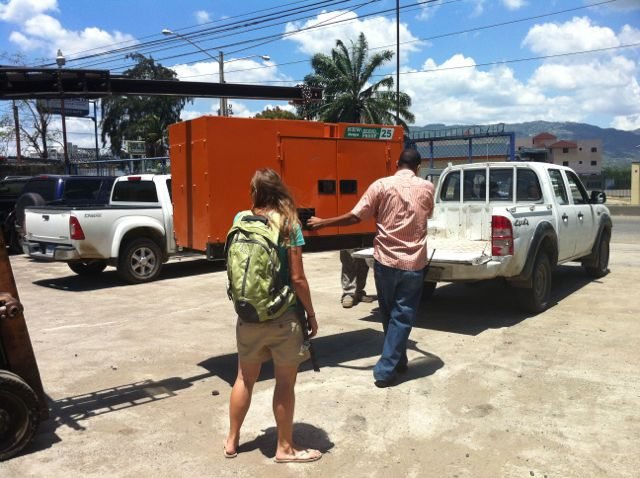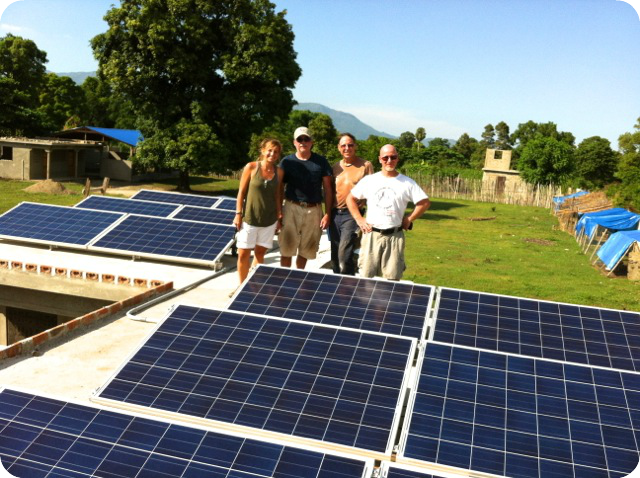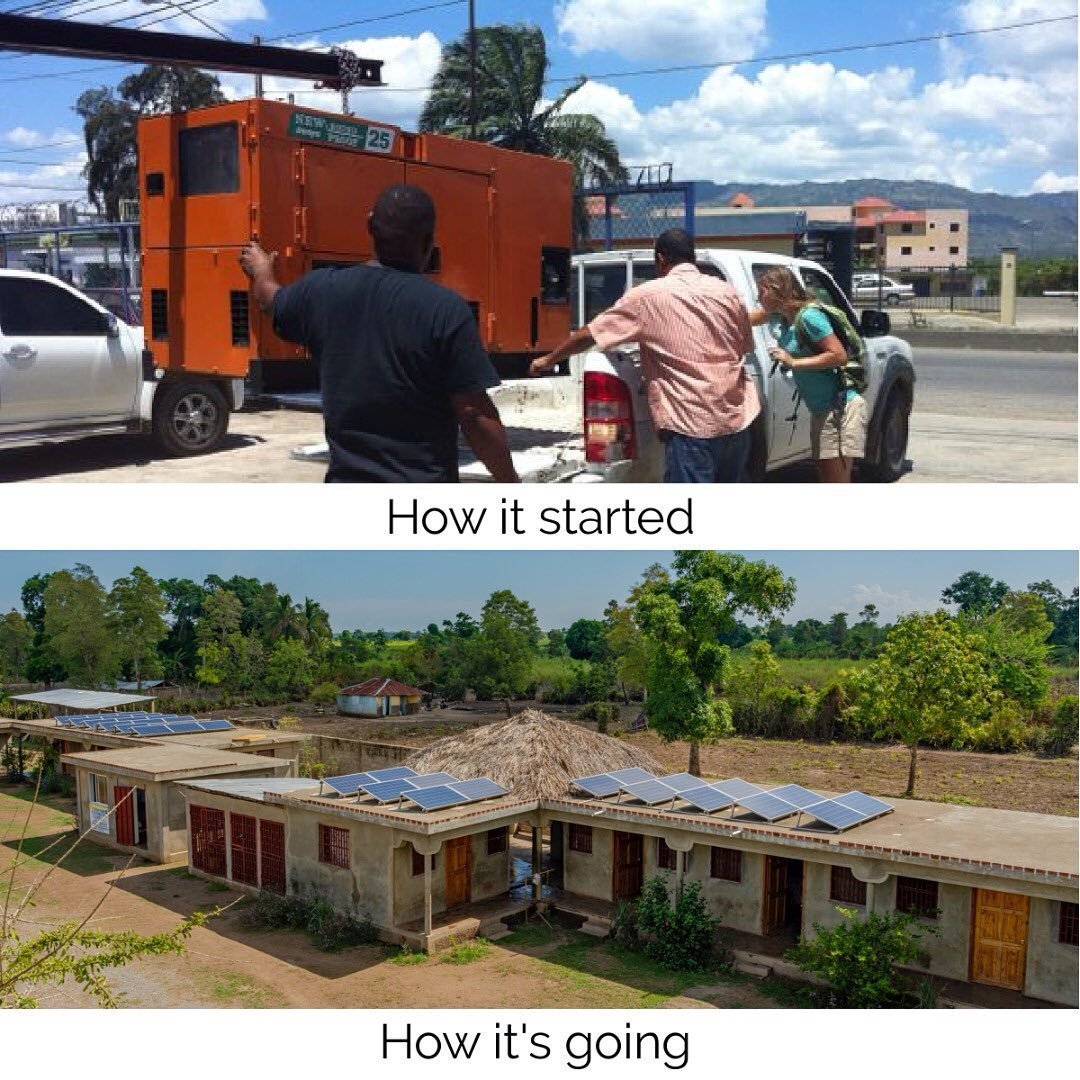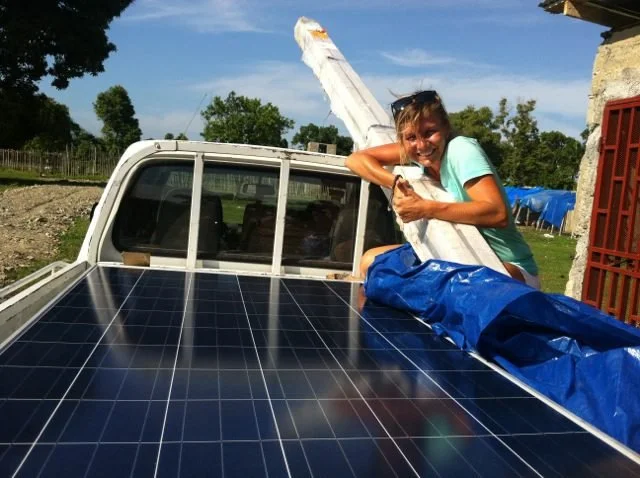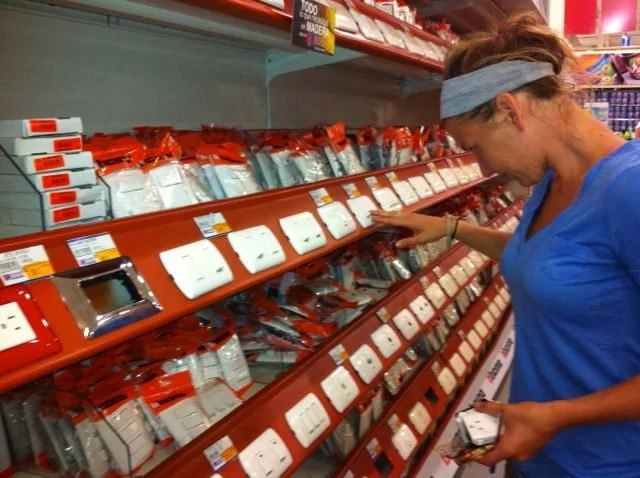In school, you're taught a lesson and then given a test. In life, you're given a test that teaches you a lesson. - Tom Bodett
When I see the photo that follows, I’m always in awe of what happened next.
It was April 15th, 2013 and Second Mile Haiti was set to open in exactly 4 weeks. We were getting down to the wire and one important piece of the puzzle hadn’t yet been sorted.
Power.
The rooms were built, the well was dug, and the programs were taking shape on paper. We even had a few crops in the ground. We had our fingers crossed—hoping that beans and corn would be ready by the time the first family spent their first night onsite.
But we didn’t have electricity.
Most people we knew—i.e. the other organizations in Northern Haiti being run by Americans—obtained electricity via generators. Big, loud, gas guzzlers that seemed to require maintenance at all hours of the day and night.
It wasn’t our first choice. We hoped for a facility run 100% by solar power— but at this point in our young career as “fundraisers” we only had about $8,500 raised that we could allocate towards electricity.
A used generator was all we could afford.
At this point in the story, we find ourselves in the bustling city of Santiago in the Dominican Republic. It was where we’d been told we could find used generators on the island. And we’d found one.
But now that it was dangling over our vehicle about to be ours, did we really want it?
No.. Not really. We wanted something more sustainable.
Jenn waved off the lift operator. “No, take it down” she managed to gesture with her hands, limited as she was by a language-barrier.
We didn’t have enough money for solar panels at the time, but staying true to our intentions was important enough to make a 180-degree turn.
On that day in 2013, we thought a generator was a necessary purchase. But as she looked at the used generator hovering over our vehicle and thought about all the money we might spend fixing, feeding, and replacing this piece of equipment through the years…
she decided NOT to go through with the purchase.
It took a few more months and a few humbling asks to raise the money for the solar panels, but we’ve never looked back.
In 10 years, not a single dollar of your generous donations has been spent on generator fuel, repair, or replacement. It’s meant that even through floods and hurricanes, fuel spikes and fuel shortages, our health centers have never been without power.
We learned a valuable lesson that fateful day.
Intentions matter. Being clear about your intentions and following them—even if it means delayed gratification or doing without something for a time— is one of the most powerful things you can do for yourself, your family, and the organizations you are a part of.
Jenn unloads solar panels 1 month after turning that big, bulky generator around
The decision to skip the generator 10 years ago has helped us be intentional in so many other ways. In fact, we don’t ever purchase anything with a plug, without first researching how much power said item might pull from our system when in use. Every employee at the center—from the midwives to the gardeners—knows how to communicate with one another so that we don’t run out of power by operating a sterilizer and a water pump at the same time. We unplug our refrigerators when it’s cloudy outside.
We are intentional. And it has paid off in so many ways.
Our intention this year is to bring you along. We want you with us for the next 10 years. And we want you to know that there are no rash decisions or unconsidered actions happening over here.
Our fierce leader is willing to–literally— turn that hunk of metal around if it doesn’t feel right.
In the end, every dollar we haven’t spent on fuel has been spent directly on keeping families together.
It’s week 2 of our push for 30 new Kolektif Members!
We still need 28 new monthly donors to reach our goal.
Will you join us today?
